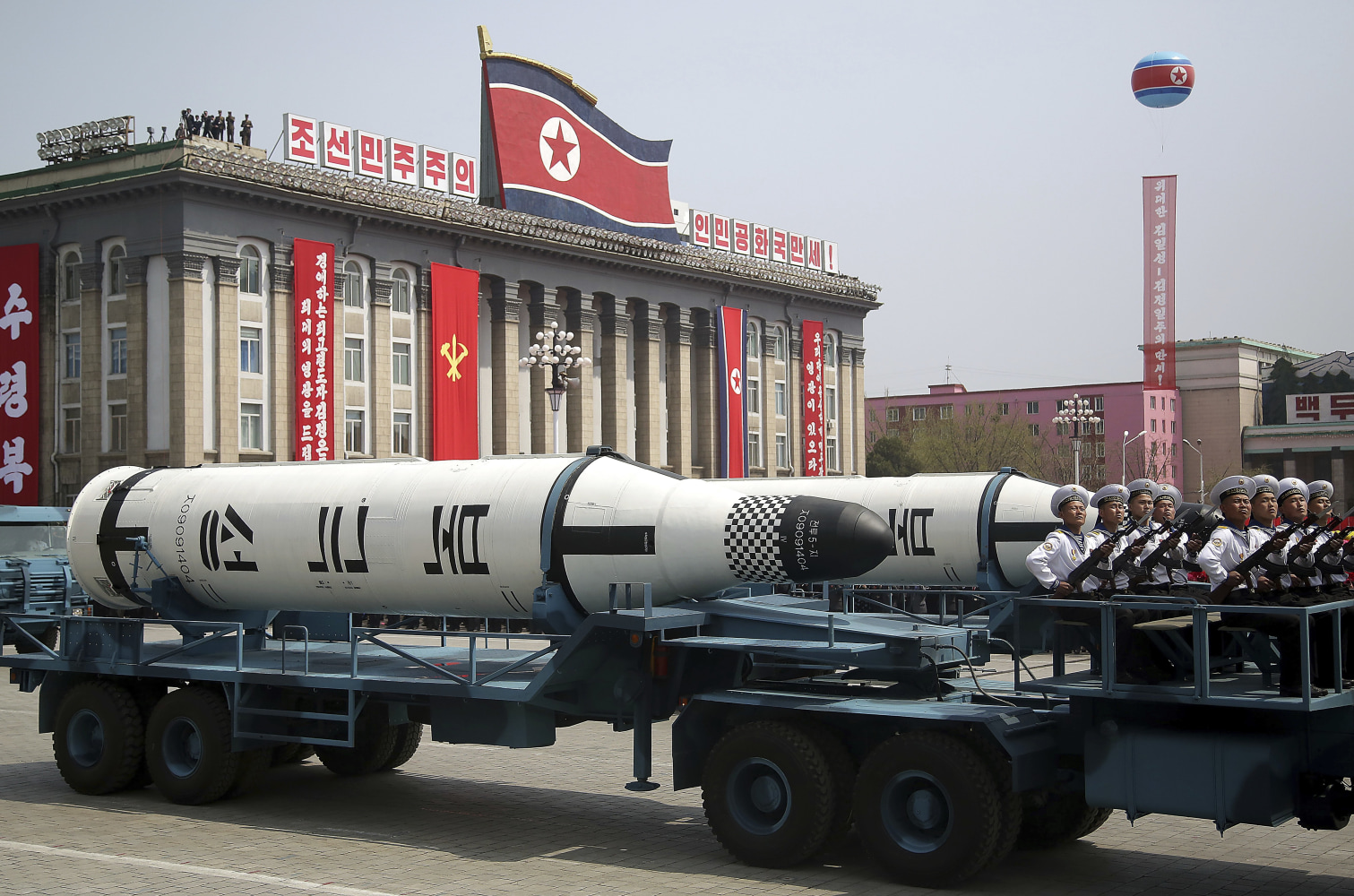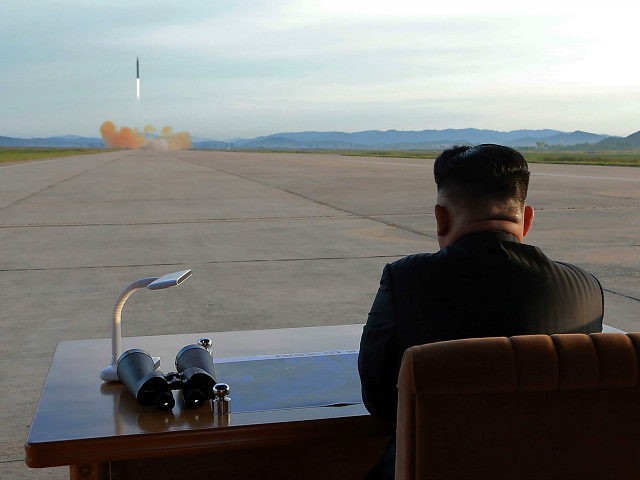Fun little statement that came from the talks between North and South Korea.
Delegations from North and South Korea met at the border village of Panmunjom on Tuesday to discuss North Korea’s participation at the Winter Olympics and generally improving the tense situation on the peninsula.
At the meeting, North Korea made an obvious play to fracture the international coalition aligned against its nuclear missile program and weaken South Korean resolve.
“North Korea’s weapons are only aimed at the United States, not our brethren, China or Russia,” Pyongyang’s representative Ri Son-gwon declared during eleven hours of talks on Tuesday. He was referring to his country’s illegal nuclear arsenal, which he said South Korea should refrain from discussing if it wants relations between the two countries to improve.
The meeting concluded with a joint statement that North Korea will send a large delegation to the Winter Olympics in the South Korean city of Pyeongchang, including high-ranking officials, athletes, and other performers.
According to South Korea’s Yonhap News, South Korean negotiators “proposed the two sides march together during the opening and closing ceremonies and form a joint cheering team.” This would be the first time the two Koreas have marched together at an international sporting event since 2007.

“The South further offered to hold a Red Cross meeting to discuss the reunion of families separated by the 1950-53 Korean War around the Lunar New Year’s holiday, which overlaps with the Olympics in February. It also proposed holding military talks to prevent accidental conflict along the border,” Yonhap added.
South Korean Vice Unification Minister Chun Hae-sung optimistically reported that the North Korean delegation “proposed resolving issues regarding inter-Korean ties through dialogue and negotiations for peace and unity on the peninsula.”
Chun mentioned denuclearization as one of the issues to be discussed, although as noted the North Koreans made it clear their nuclear weapons program will not be on the table. Yonhap relates a long list of unequivocal demands from the North Koreans, including an end to U.S.-South Korean military drills, the end of economic sanctions, and the resumption of joint economic projects between the two Koreas. Some of the joint projects and cross-border businesses they wish to resume would clearly violate or nullify U.N. sanctions against North Korea. The South Koreans indicated a willingness to suspend some of their sanctions against North Korea for the purpose of allowing North Korean officials to travel to Pyeongchang to attend the Winter Games.
In return, they evidently offered little except an offer to attend the Olympics, consideration for further negotiations, and a promise to only use nuclear weapons against the United States. The most cynical interpretation of the Panmunjom talks, offered by observers such as Michael O’Hanlon of the Brookings Institution, is that North Korea is doing the absolute minimum to appear reasonable in the eyes of China and Russia so they weaken sanctions against it. China, in particular, took unprecedentedly strong steps against North Korea in 2017, to the cost of Chinese enterprises that do business across the border, and might be looking for a way to back down.

O’Hanlon added that he supports continued talks anyway, “because some degree of defusing what’s become an urgently dangerous crisis between one nuclear-armed country run by a dictator and a very powerful alliance to the South has been the scariest thing in the second part of 2017 and to start the new year.”
A more optimistic take came via Time from Professor Stephan Haggard of the U.C. San Diego School of Global Policy, who said, “The real play here is ultimately seeing whether Seoul provides an opening point for the North Koreans to have some sort of talks with the Americans bilaterally.”
The key question is why the Olympic talks happened after years of belligerent threats and complete intransigence from Pyongyang. The pessimistic take is that dictator Kim Jong-un knows he only needs a little more time to perfect his nuclear arsenal, so he is running one last clock-eating play from the playbook North Korea has used since the 1990s.
From this perspective, the willingness of the United States and South Korea to suspend military exercises during the Olympics and entertain other North Korean demands is a sign of concession to the new reality of Pyongyang as a nuclear power. The race to block Kim’s nuclear missile program is over, and he won with a home-stretch sprint that got him across the finish line years ahead of Obama administration projections.
The optimistic interpretation is that tough sanctions imposed during 2017 are starting to sting in Pyongyang, and Kim is the one making the first tentative concession to further negotiations. No matter how belligerent and demanding the North Koreans might seem now, the important thing is that they are talking. The Associated Press deems this “a fairly stunning turn of events” because South Korea has been trying to establish a dialogue for months, without success.

However, even Prof. Haggard’s brighter take on the Winter Olympic talks included a prediction that Kim will never put his nuclear weapons on the bargaining table. The best we might be able to hope for is ongoing dialogue and open communication with South Korea that will minimize the risk of future provocations or misunderstandings escalating into apocalyptic warfare.
The AP notes that South Korea’s leftist government endorsed the idea that “our people’s issues should be solved by ourselves” in its joint statement with North Korea following Tuesday’s talks. That could develop into a significant victory for North Korea if denuclearization is truly off the table, and the only question left is how many of Pyongyang’s demands Seoul will grant in order to secure an uncertain peace with its deranged…


